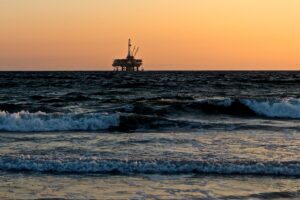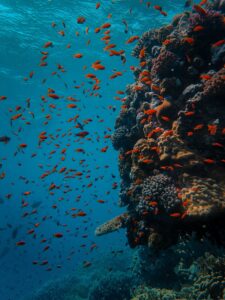A unique solution to the rising problem of oil spills
Any type of human-made disturbances in the ocean poses a big threat to the natural ecosystem. Although we might not all picture the marine habitat with lush biodiversity, like a tropical rainforest, it is still filled with precious and dynamic forms of life and is very fragile to human disturbances.
One extremely serious form of disruption in the oceans is oil spills; most of the time, this happens from accidents occurring on drilling vessels. Sudden increases in the amount of free-floating oil in one specific location of the sea cause big upsets to all organisms living in the region. Many species can go extinct, and a larger number will see their population undergo mutations and be severely diminished. Oil-digesting bacteria, however, is a very good approach to at least mitigate the negative consequences, although it is by no means able to completely solve the problem of oil spills from the root.
General Information about the bacteria
According to the NOAA, some families of bacteria that can consume oil are Marinobacter, Oceanospiralles, Pseudomonas, and Alkanivorax. Contrary to what most people might think, oil-eating bacteria are not all genetically modified, or man-made. They can occur naturally, as oil is present as a natural substance in oceans even before humans had begun to harvest it. However, when oil spills occur, the specific hydrocarbon compound that was spilled may be somewhat incompatible with the digestion machinery of the bacteria.
This means that the naturally-occurring bacteria probably won’t reproduce to generate enough of itself in time at the site of the spill, and won’t be efficient in processing the breakdown of oil before it spreads to a very large area. However, it is very important to contain every spill at its core as soon as possible.
Genetical Engineering
Scientists have genetically engineered some of the naturally-occurring bacteria, and have also added man-made strains to increase the number of options for treatment. The most common way to go about this is to exploit the bacteria’s simple DNA structure. Bacteria tend to have a single round piece of DNA that contains all its information. However, it is simpler to add more genes for them than for more complex organisms like humans. Scientists can use additional circular genetic material the bacteria already has, called plasmids, to cut open and insert the genetical code. The codes correspond to creating enzymes that are specifically directed toward eating oil at a very quick pace.
After the new plasmid is inserted back into the bacterial cell, the bacteria is said to have undergone recombination. The stronger enzymes produced from the newly introduced gene increase the efficiency of the bacteria at digesting the oil. As well, scientists can also include other genes that help the bacteria to adapt quickly to the physical environment of the oil spill zone. Proteins only work at certain temperatures and pH (measuring the acidity of the environment), so scientists have to pick their enzymes wisely. With the correct genetic modifications, the bacteria can even rely solely on the hydrocarbon compounds of oil for food and reproduction!
The increased use of these bacteria
The 2010 Deepwater Horizon oil rig accident was one of the worst of its kind in modern history. The oil rig was destroyed in a horrible accident, spilling hundreds of millions of gallons of oil into the Gulf of Mexico. Accidents like these not only disrupt the marine ecosystem but also greatly harm the coastal saltwater marshes and estuaries and impact human coastal communities. In addition, the factories that draw saltwater from the ocean face economic pressure; now they have to find alternative, non-polluted sources of water. As the fishing and tourism industries also go down because of health concerns in the region, some businesses will face extreme pressure as well. You can learn more about the spill here.
Most importantly, the long-lasting effects of oil spills are not yet well-known, as oil spills only started happening recently. It is because of these reasons that bioremediation is important. Bacteria would break down petroleum into harmless carbon dioxide and water, helping to protect marine life. The good news is that, with biotechnologies becoming increasingly developed and sophisticated, genetic modifications are becoming cheaper and faster every year.
With all these in mind, I am glad to hear about this new biological creation that aids in solving one of the world’s most serious problems! Marine life is very important to protect, and we should all appreciate its diversity and be engaged in our current-day issues.
Image 1: Image by C Morrison from Pixabay
Image 2: Image by shadi6454 from Pixabay


